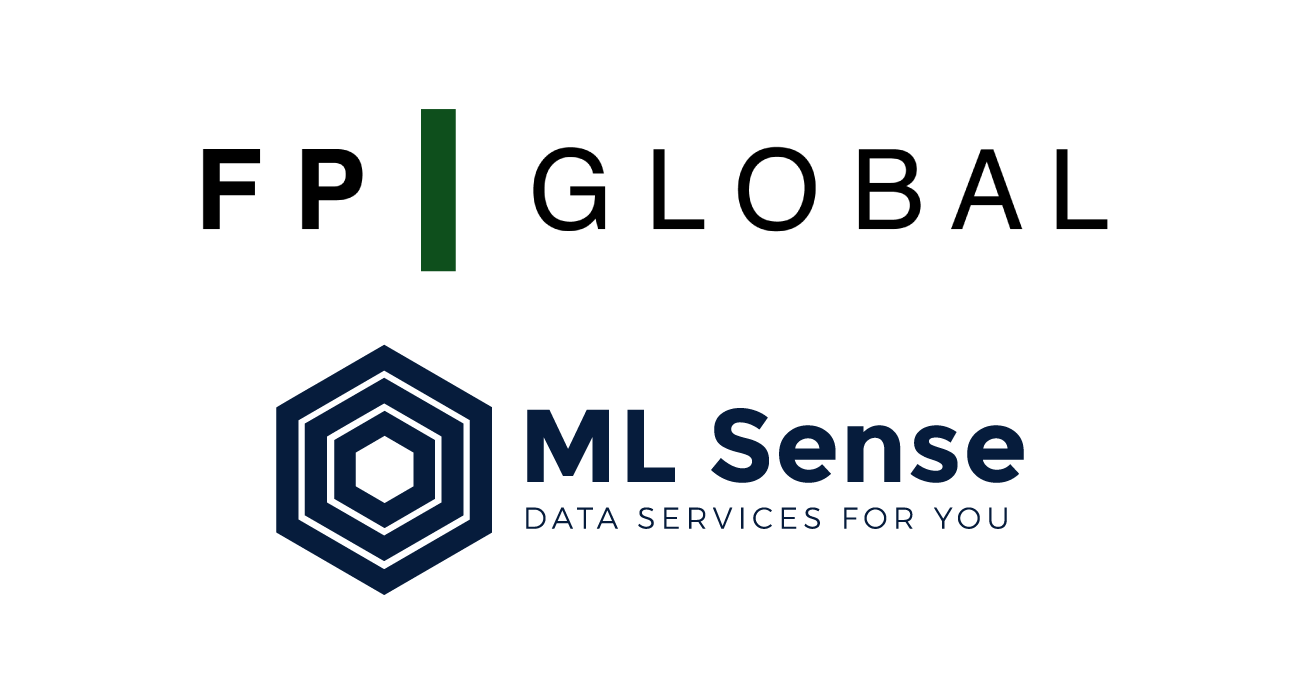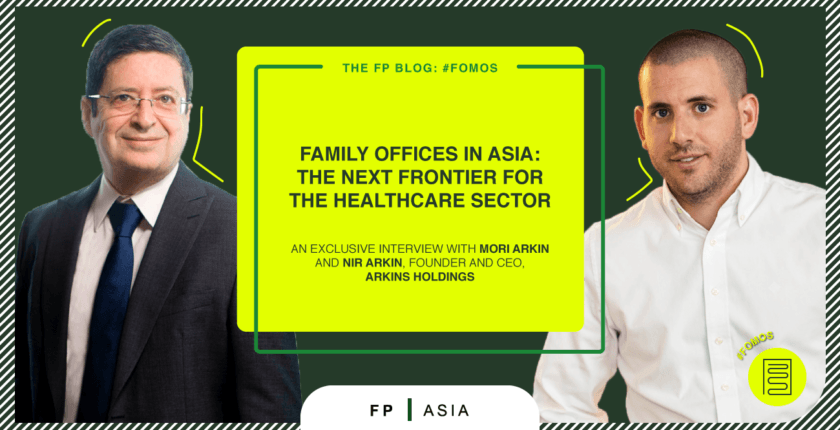Latest Insights
February 27, 2020
In an over-saturated market in North America and Europe, how can Family Offices find their breakthrough and new opportunities in the pharmaceutical and healthcare sector? In this exclusive interview, we glean insights from Arkin Holding’s Chair & CEO, Mori & Nir Arkin, on the business development in the global healthcare sector and its future trajectory into uncharted territories – Asia.
Share with us your career trajectory in a nutshell.
M: I started my career at Agis – the company my father, Ziama Arkin, started. Agis is a certified Israeli pharmaceutical importer for a number of foreign pharma companies. Due to my father’s untimely passing, I took over the company at a young age of 19. I had to juggle running the business while serving in the Israel Defense Forces and completing my degree in Psychology.
In 1994, we purchased our first production facility, Clay Park with the aim of expanding into drug development and production. During which, I served as the principal shareholder and chairman of the board. Within the next decade, Agis grew into one of the biggest leaders in the dermatological generic space in the US. With its success, we sold off Agis to Perrigo for US$818 million in 2005.
After the sale, I founded Arkin Holdings in 2009. I focused on the market I knew best – healthcare. I wanted to empower pioneering developments in healthcare, focus on pharmaceuticals, biotechnology and medical devices.
Arkin Holdings is the professional and financial platform that made all these developments possible. It is an Israel-based investment holding company specializing in healthcare investments. We operate through our four investment arms: venture capital, private equity, hedge funds and direct investments.
Since then, I am constantly searching for opportunities to participate in innovative healthcare endeavors that provide solutions for unmet medical needs. Through our portfolio of holding companies, we contribute to their R&D and growth with pharmaceutical knowledge, deep market outreach, significant investment experience and financial resources.
N: I started my career as a lawyer in 2012. Even while studying law, I had an interest in capital markets. This led to my internship stint at the capital market department of the Shibolet law firm under Moshe Ne’eman and Gil Rosenberg.
A year later, I was roped into my family business with Arkin Holdings. To prepare myself to lead the business, I underwent a year-long replacement training with the former CEO, Menachem Inbar. While it was an intensive experience, I gained valuable insights into the various areas of Arkin’s activities.
Since 2014, I served as CEO and actively invested and collaborated in life sciences. By forging partnerships with institutional investors and leveraging on our technical expertise, we actively grew the company’s portfolio.
How has Arkin Holdings grown under your leadership?
Today, Arkin Holdings has amassed a healthcare portfolio worth over US$1 billion through our four investment arms:
- Arkin BioVentures (Pharmaceuticals & Biotechnology) – Invest in early and mid-stage companies with game-changing breakthroughs in areas such as immunotherapy, cancer and drug delivery platforms.
- AccelMed (Medical Devices) – Focuses on medical device technology investments, integrating innovative and market-ready medical device technologies, into existing commercial companies.
- Sol Gel (Dermatology) – Specializes in developments of technologies and products in dermatology.
- Sphera Global Healthcare – Joint venture between Arkin and Sphera Funds Management in two global long/short equity Funds – Sphera Global Healthcare Fund & Sphera Biotech Fund.
Apart from my CEO duties, I currently serve on the board of directors at Sphera Global Healthcare and on the Accelmed and Sphera Global Healthcare’s investment committees. Sphera Global Healthcare was formed in 2007 as a partnership between Arkin Holdings and the largest hedge fund manager in Israel, Sphera Funds Management.
Over the years, we gained international recognition and awards for excellence among leading hedge funds worldwide. Today, Sphera has a record $1.5 billion in assets under management.
Our investors include Israel’s largest banks, leading insurance companies, the largest pension and provident funds in Israel, universities, public and private companies, organizations and institutions, leading family offices and private investors.
I’m proud to share that our current team comprises of more than 40 professionals, of which more than 20 are investment professionals. We have our headquarters in Tel Aviv and have offices in New York and Singapore.
What motivated you to move into the Asian market?
N: While our current portfolio is predominantly invested in North America and Europe, we find that we can no longer ignore the Asian market. It is simply too good an opportunity to miss.
Thus, we have been increasing our presence in Asia primarily through our hedge fund arm, Sphera Global Healthcare since 2016.
In 2018, we took our commitment to Asia one step further by setting up a presence in Singapore. We hired a team of two professionals for sales and business development to explore all opportunities across all our investment arms. Our main focus was marketing our investment strategies to Asian investors.
What attracted you to choose Singapore as your launch pad for Asia?
M: I observed the surge in activities in the pharmaceutical industry in Singapore over the past decade. Over 30 of the world’s top pharma and medical technology firms, including pharma giants such as GlaxoSmithKline, Pfizer and Novartis have established manufacturing, R&D or headquarters in Singapore. I believe that Singapore is well-poised and headed in the right direction where we see upside potential and growth in the healthcare space.
N: I was personally drawn to Singapore due to two factors: continued support from policy makers and the rich talent pool.
Firstly, the Singapore government has constantly been very supportive of our industry. Since 1995, the Singapore government has initiated a series of five-year plans to embolden its science and technology ambitions. This included a committed budget of $19 billion to the Research, Innovation & Enterprise 2020 Plan (RIE2020)1, which are targeted at four main pillars:
- Advanced Manufacturing and Engineering
- Health and Biomedical Sciences
- Services and Digital Economy
- Urban Solutions and Sustainability
Under RIE2020, the Health and Biomedical Sciences (HBMS) Agencies are tasked with the mapping of problem-solution pathways in order to facilitate the translation of research discoveries into healthcare solutions, innovative medicines or medical devices.
We understand that the Singapore Ministry of Health has identified five therapeutic areas in healthcare as areas of focus:
- Cancers
- Cardiovascular diseases
- Diabetes mellitus and other metabolic/endocrine conditions
- Infectious diseases, and
- Neurological and sense disorders
Fortunately, these five areas possess huge potential and align with Arkin’s direction for our plans in Asia. With the support from policy makers, we anticipate ample opportunities and collaborations for the new decade.
Next, Singapore has a rich talent pool that is innovative and progressive. It is my personal belief that the growth in Singapore’s universities can be attributed to its national focus on excellence in research and education, and strong research infrastructure. Its rankings have steadily climbed primarily because of their improved research influences on an international level.
For example, take National University of Singapore (NUS) and Nanyang Technological University (NTU). They were ranked 12th and 13th globally in 2015, up from 22nd and 39th in the previous year.
Their field-weighted citation impact (FWCI) surpassed other top Asian universities, including the University of Hong Kong, the University of Tokyo, and the Peking University. Singapore became an obvious choice for us to be our headquarters in Asia. I’m looking forward to leverage on the brilliance of the local talent pool to further our R&D in the healthcare sector!
M: I found that Singapore has one of the friendliest business environment around. We know biomedical MNCs are increasingly seeking opportunities globally by collaborating with academia and other companies to enhance their R&D.
The Singapore government has made extremely hospitable for us to establish our subsidiaries here through a number of schemes. One such scheme will be the “plug-and-play” R&D infrastructure. Our subsidiaries can automatically claim tax incentives on our R&D expenses and clinical trial costs incurred as long as they are funded from Singapore.
Also, I feel that Singapore is the gateway to the Asia Pacific market. Its strategic location allows us to tap on the region’s pharmaceutical industry value chain from research and running clinical trials, to manufacturing and drug delivery,
What do you envision the next big move to be in Asia?
M: We are anticipating the alternative assets industry to grow to US$14 trillion in 2023, from over US$8 trillion in 20172. We believe a large proportion of assets will originate from Asia-Pacific.
From Preqin, 60% of fund managers believe they would see an increase in capital sourced from the region by 2023. In contrast to the less than 40% increase in capital sourced from North America, Europe and Emerging Markets, we believe Asia Pacific will have the greatest growth potential and the necessary resources to advance the healthcare space.
N: Hence, we plan to establish permanent presence in Asia, with Singapore as the Asian headquarters. We are looking at building an Asian Research Investments team to explore the rich biotechnology ecosystem of universities and laboratories in Singapore and in the region. Hopefully, this will lead to the development of a more Asia-focused investment strategy.
We are also looking to establish long-term relationships with Asian investors for our different investment strategies and develop strategic partnerships in Asia.
Articles You May Like





Talent is King (and Queen) in Alternatives: Insights from the 2024 EY Global Alternative Fund Survey

Capabilities
Executive Search
LEADERSHIP TRAINING & CONSULTANCY
People
Expertise
FP GLOBAL PTE. LTD. Licence Number: 22C0953









